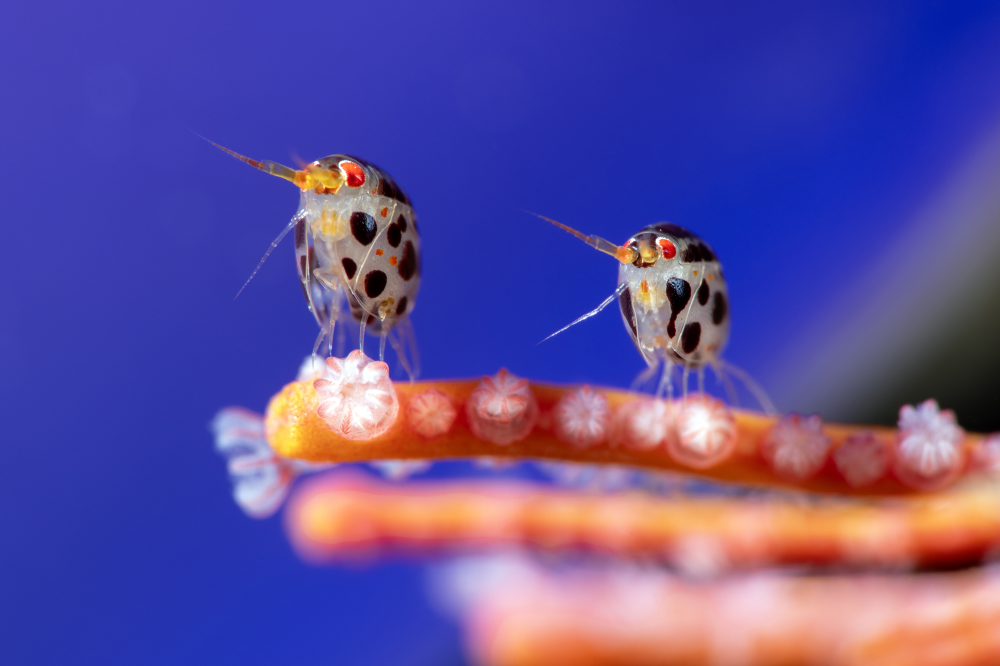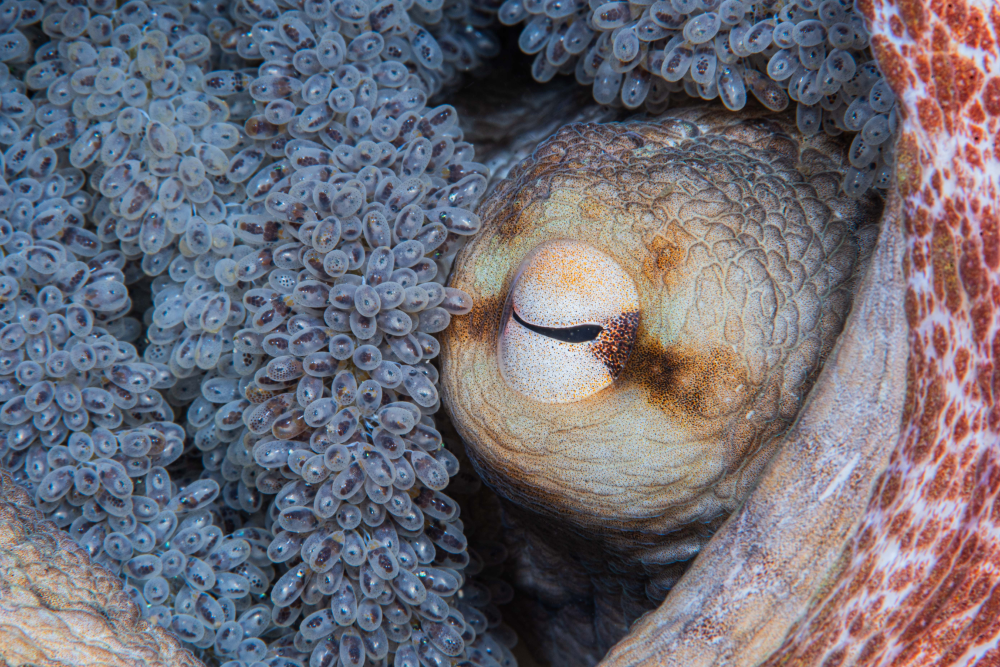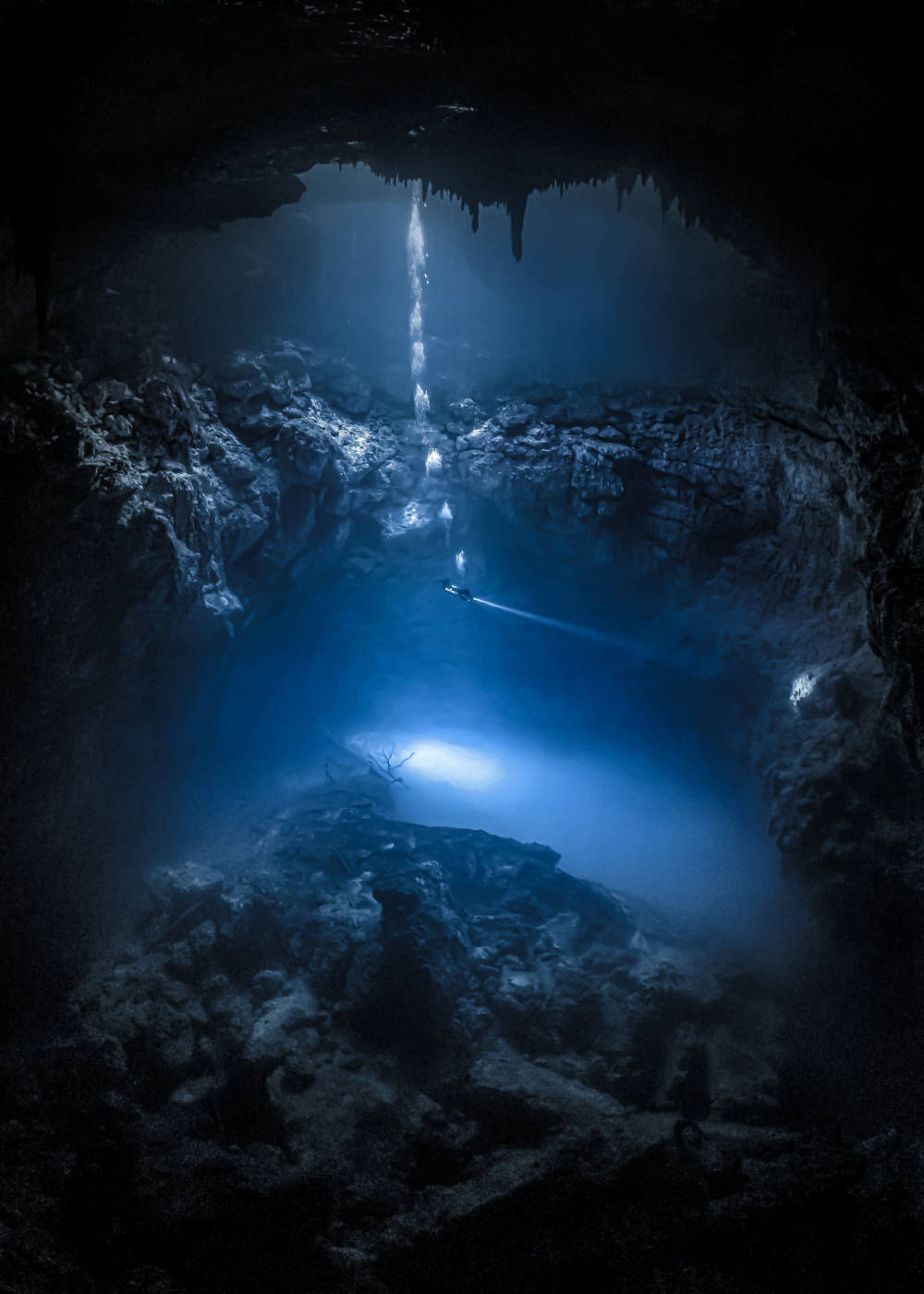An incredibly badass photo that’s emerged from the 2025 Ocean Photographer Of The Year competition shows a juvenile orca going above and beyond as it hunts a harbour seal despite being at an age where most orcas are still relying on milk. That this powerful image earned photographer Yifan Ling second place in the wildlife category demonstrates the calibre of this year’s competition, which highlights in a dazzling portfolio of images that there is beauty – big and small – to be found everywhere in the marine environment.
The rest of this article is behind a paywall. Please sign in or subscribe to access the full content.
Small got a big shout-out in this year’s overall winner, which went to Indonesia-based macro expert, Yury Ivanov. The winning image showed two “ladybugs of the sea” sitting daintily on a piece of coral. At just 3 millimeters tall, they are among the ocean’s smallest and most charming residents.

Meet the ocean’s answer to ladybugs.
Image credit: Yury Ivanov, Ocean Photographer Of The Year, Oceanographic/Blancpain
“It required a lot of patience and precision to compose and light the shot properly,” said Ivanov in a release sent to IFLScience. “The result reveals an intimate glimpse of underwater life that is often overlooked.”
As for wildlife that’s hard to miss, our absolute beast of a one-year-old is – fittingly – a Bigg’s orca, and that unlucky so-and-so in its mouth is a harbour seal. Not something you normally find such a young orca eating.
“At this age, orcas typically rely on milk,” said Ling. “His skill highlights the Salish Sea’s richness, where harbour seals and orcas have rebounded thanks to the Marine Mammal Protection Act of 1972.”

An octopus meeting her eggs often signals the beginning of the end of her life.
Image credit: Théo Maynier, Ocean Photographer Of The Year, Oceanographic/Blancpain
That theme of hope runs through some of the other award-winning photos from the 2025 competition. Among the Conservation highlights, third place went to Théo Maynier, whose photo, taken in Martinique, shows an octopus guarding its eggs.
“In Martinique, the octopus is becoming increasingly rare due to human overconsumption,” says Maynier. “Marine reserves have been created to offer a refuge. In this context, this encounter stands as a sign of hope.”
The reproductive process of octopuses is delicate in several ways, not least because after the females of some octopus species lay their eggs, they stop eating, slowly withering away until they die. The trigger of this process, known as the death spiral, has long puzzled researchers, but last year we figured out what drives this unfortunate end. The complexity of octopus reproduction is also part of the reason it’s so hard to farm octopus, beyond the myriad ethical arguments against this practice.
And as for beauty, might we invite you to dive into a cenote in Cancun with Jeong Yul Park?

Hard to imagine places like this exist on Earth.
Image credit: Jeong Yul Park, Ocean Photographer Of The Year, Oceanographic/Blancpain
“I wanted to capture the entire view from the cenote’s entrance in a single frame, so I positioned myself at the very back for the shot,” said Yul Park.
To see the full list of finalists from the 2025 competition, click here. The Ocean Photographer of the Year is presented by Oceanographic Magazine and Blancpain.
Source Link: 1-Year-Old Orca Takes Out A Big Fat Seal In This Award-Winning – And Extremely Badass – Photo